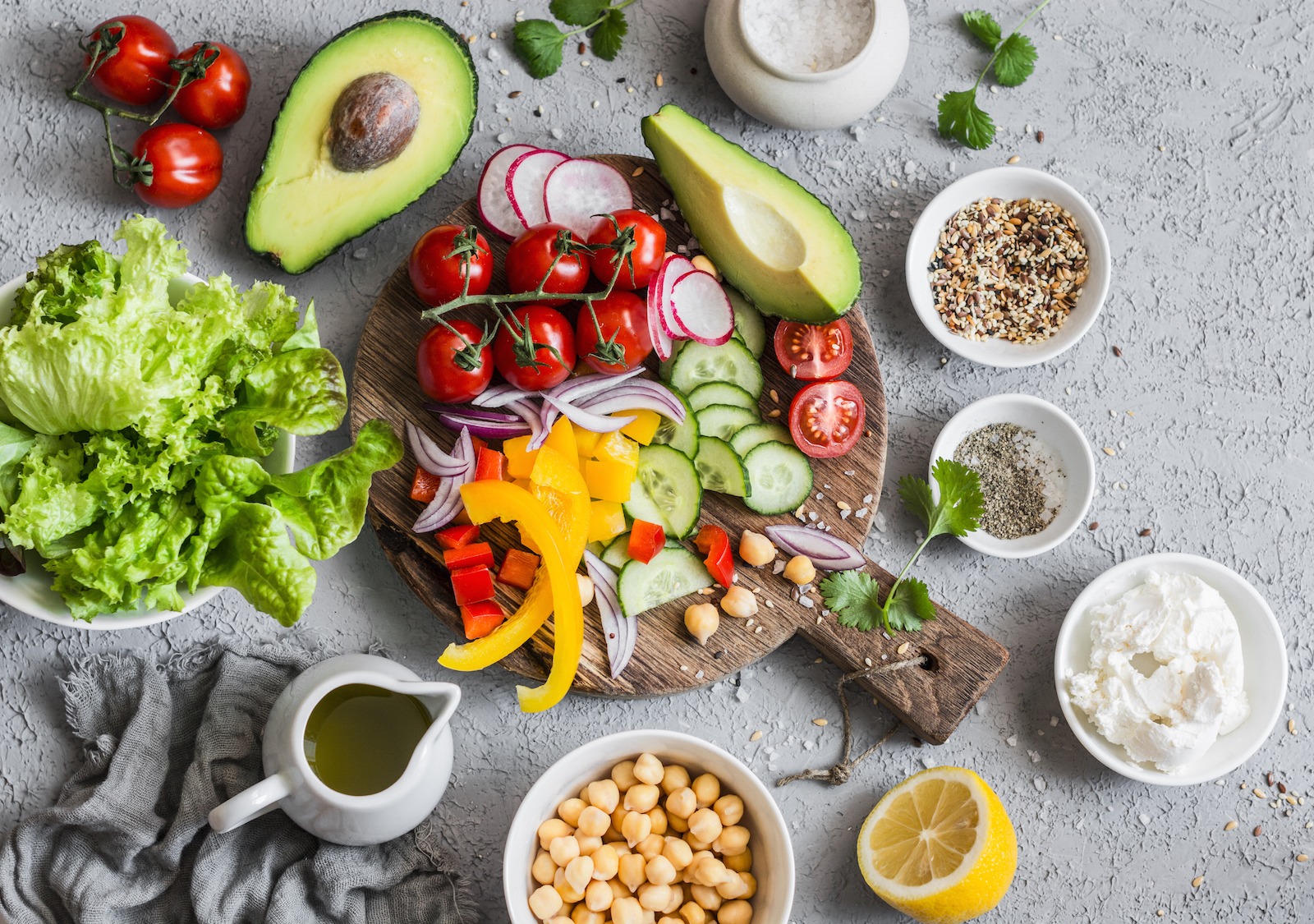 Eat Empowered
Eat Empowered  Healthy Eating Tips
Healthy Eating Tips  Wellness Advice from Experts
Wellness Advice from Experts
How to Lower Heart Disease Risk, According to a Top Nutritionist
Home » Eat Empowered » How to Lower Heart Disease Risk, According to a Top Nutritionist
Ask Keri: How can I lower my risk for heart disease?
Keri Says: There are many, many (simple!) ways you can adjust your diet and lifestyle to lower heart disease risk for you and your family.
That’s a good thing, because heart disease stats can be scary. According to the Centers for Disease Control and Prevention (CDC), it’s the leading cause of death for both men and women in the US. In fact, one in every four deaths is attributable to heart disease.
Don’t freak out: All you’ve got to do is understand the disease, read up on the risk factors, and start making tiny tweaks to keep your precious heart beating strong.
What Is Heart Disease?
A quick review, first: There are a few types of heart disease, but coronary artery disease is the most common.
Essentially, it’s caused by the buildup of plaque in a coronary artery. Plaque is made up of fat, cholesterol, and other substances in the blood. As it builds up in one place, it narrows the artery, making it harder for blood to flow. When it blocks the artery completely, a heart attack may occur.
Heart Disease Risk Factors
There are some heart disease risk factors you can’t control, like age and family history.
However, most of the factors that raise your risk are ones you can modify, like smoking, lack of exercise, and chronic stress. Your risk also goes up if you’re overweight or obese or have diabetes, high blood pressure, or high cholesterol.
RELATED: How Much Stress Is Too Much Stress?
You might have noticed something about many of those risk factors: Most of them are interrelated in that they’re often all related to an unhealthy diet and lack of physical activity. If you’re overweight, for instance, you’re at higher risk for diabetes and high blood pressure. If you’re eating a diet high in fried, processed foods, you might have high cholesterol and be overweight. In other words, that’s good news, because if you make simple changes to your diet and lifestyle, you can reduce many of these risk factors all at once.
How to Reduce Your Risk for Heart Disease
Okay, here’s how you’re going to do that.
First of all, the simple directives: Stop smoking and reduce your alcohol intake as much as possible. (That doesn’t mean you can’t enjoy a glass of wine, but the less you drink, the better.) Exercise is also a must. It keeps your cardiovascular system healthy and helps you maintain a healthy weight.

Avoiding too much excess weight is crucial, which is why diet matters so much.
First, let’s talk about the foods you want to limit in your diet. Almost all of us get too much sodium, and high sodium intake can lead to high blood pressure. Aim to eat no more than 2400mg per day. Sugar is another big one. Too much sugar is a primary culprit in weight gain, which can lead to obesity, diabetes, and high blood pressure.
RELATED: This Is What Too Much Sugar Does to Your Body
One way to easily cut back on both is to avoid processed foods as much as possible, since that’s where sugar and sodium are generally hiding. If you eat whole foods and cook for yourself, you’re naturally going to get much less of both.
Fat is one of the most confusing nutrients. It is important to avoid the “bad” types of fat that contribute to the buildup of plaque in the arteries and raise LDL cholesterol. Trans fats are the worst among them, so stay away from fried foods and partially hydrogenated oils.
Saturated fat, found in meat, cheese, and coconut oil, is more complicated. The general scientific consensus is that a diet high in saturated fat raises total cholesterol and tips the balance towards harmful LDL cholesterol. Recent studies have shown that those effects might not be as pronounced as once thought and that what people eat in place of those foods also affects whether people reduce or raise their risk by cutting back. So, if you’re trying to eat for a healthy heart, my best advice is that you don’t have to skip saturated fat, and there might even be benefits to some foods high in saturated fat. Just limit it to certain meals and eat it in small servings as part of a diet that’s overflowing with veggies.
Omega-3 fats, on the other hand, can reduce LDL cholesterol and increase HDL cholesterol (the good one!). Get those fats from fresh fish, olive oil, avocado, flaxseed, and walnuts. Also, healthy foods that are naturally high in cholesterol, like eggs and shrimp, don’t necessarily raise LDL cholesterol in the body, so you can definitely keep those in your diet.

Which brings me to what you should eat—a whole food diet that’s chock full of plants, healthy fats, fish and shellfish, and some high-quality meat and poultry (if you want…it’s okay to be vegan, too!).
If you think about whole plant foods like vegetables and whole grains as the center of every plate, you’ll naturally limit sodium and sugar and foods high in saturated fat.
And you’ll maximize the heart-healthy benefits of plant foods, starting with fiber. Soluble fiber, found in fruits, vegetables, and whole grains, can reduce cholesterol in the body. Aim for 30 grams per day by eating high-fiber foods like fresh fruits (with the skin on), dark, leafy greens, legumes, and oats.
Plant foods are also high in antioxidants, those compounds I often talk about that fight oxidation in the body. That effect can prevent damage to your arteries. Foods high in antioxidants like vitamin C, E, and beta carotene include berries, citrus fruits, tomatoes, dark green leafy vegetables, broccoli, sweet potatoes, carrots, coffee, and dark chocolate.
Plus, in addition to lowering your risk for heart disease, antioxidant-rich foods are associated with lower risk of cancer, too. Talk about getting a lot of bang for your buck.
(Photos: Shutterstock)
The Nutritious Life Editors are a team of healthy lifestyle enthusiasts who not only subscribe to — and live! — the 8 Pillars of a Nutritious Life, but also have access to some of the savviest thought leaders in the health and wellness space — including our founder and resident dietitian, Keri Glassman. From the hottest trends in wellness to the latest medical science, we stay on top of it all in order to deliver the info YOU need to live your most nutritious life.
RECENT ARTICLES

Want a sneak peek inside the program?
Get FREE access to some of the core training materials that make up our signature program – Become a Nutrition Coach.
Get Access"*" indicates required fields













































































































































































































































































































































































































































































































































































































































































































































































































































































































































































































































































































































































































































































































































































































































